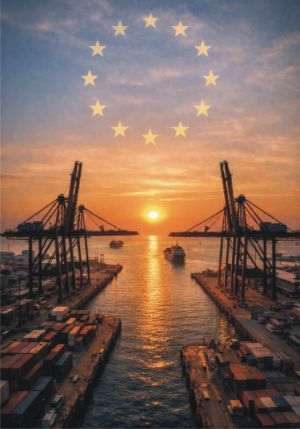The representatives of the Warsaw Stock Exchange maintain their recently announced strategy, which claims that Warsaw Stock Exchage (WSE) wants to attract an increasing number of companies from the Central and Eastern Europe.
With that in mind, WSE vice-president Grzegorz Zawada announced that in the coming period, the Warsaw Stock Exchange will organize a series of "special days" dedicated to companies in the region, which would allow them to get in contact with Polish investors and more, the first such event to be organized in Romania.
On the occasion of the conference "Warsaw Capital Market Summit 2015", Grzegorz Zawada felt the need to bring to the public's attention the fact that Poland has the quickest economic growth in Europe and its capital market is continuing along the same trend, in terms of trading volume, the quality of the listed companies, the corporate governance standards or investors' interests.
The WSE vice-president explained: "We the people on the Board of the Warsaw Stock Exchange also want the region that Poland is a part of to benefit from its accomplishments. We want to make sure that our success also carries over to Central and Eastern Europe. With that in mind, we will be organizing special events, where companies in those countries will be able to present their success stories before Polish investors. Very soon we will be organizing such an event dedicated to Romania".
Grzegorz Zawada stressed that the Warsaw Stock Exchange is already in talks with companies listed in countries such as Latvia, the Czech Republic or Bulgaria, to convince them to do dual listings, but also mentioned the fact that the WSE has not yet contacted any Romanian companies in that regard.
Pawel Tamborski, the CEO of the Warsaw Stock Exchange said that the WSE has over 60 foreign companies listed, most of them being companies from Eastern and Central Europe.
He said: "Our strategy is to become the main option for companies in the region that want to get listed, as well as the first option for investors when they think of investing in those companies".
• Tamborski: "Liquidity, liquidity, liquidity! - that's what all the foreign investors talk about"
The WSE CEO mentioned that the series of privatizations in Poland is nearing its end, as it was one of the most important factors behind the transformation of Poland's economy. But Pawel Tamborski thinks that the Polish state still has the power to develop the Romanian capital market because it still holds significant stakes in the listed companies.
Mr. Tamborski stressed that the recent talks he had with foreign investors seeking to enter the Polish market revolved around "Liquidity, liquidity, liquidity". According to him, sometimes it is better to get listed on smaller stock exchanges to win the support of market participants and the investors' interest, referring to the rivalry between the London Stock Exchange and Warsaw Stock Exchange. "London is currently our biggest competitor when it comes to the IPOs of companies from the Central and Eastern Europe region", said Pawel Tamborski, who stressed: "In Poland there is an appetite for attracting companies in the region. We are now trying to convince the international financial community that the Warsaw Stock Exchange is back in the game, even though there were some voices who were saying that we do not have a development direction.
I hope that after the completion of the privatizations in Poland we will succeed in developing the other markets in our region".
The issue of choosing the platform for the listing of companies in the region was also discussed by Greg Konieczny, the manager of the Proprietatea Fund and CEO for Romania and Eastern Europe at Franklin Templeton, who said: "It is a lot better to be a big fish in a small aquarium than a small fish in a big ocean, because there is the risk of investors avoiding you after you get listed".
In the European Union, only about 25% of companies resort to the stock markets for financing, while the remaining 75% use bank loans, said Iwona Sroka, president and CEO of the KDPW, the Polish Central Depository. In his opinion, there is a huge potential for growth for companies in Central and Eastern Europe, particularly due to European initiatives such as the creation of the Union of Capital Markets.




























































